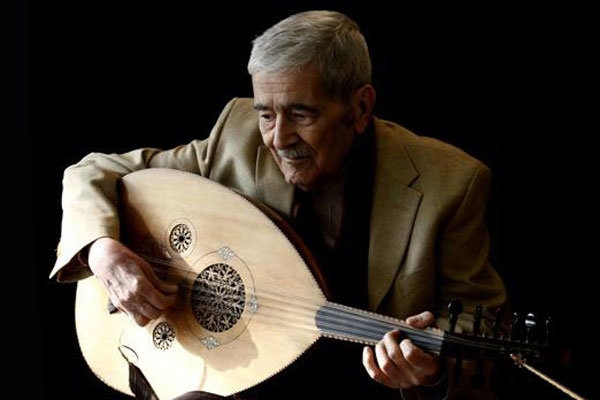Eskandar Ebrahimi Zanjani known as Mansour Nariman was born in 1935 in Mashhad in a family who loved music and his father was a player of the Tar, the Ney, and the Setar.
Being taught by his father, his first teacher, he started playing for the local radio of Mashhad city in northeastern Iran when he was just 14.
After a while he went to Iranian southern city of Shiraz and cooperated with the local radio of the city for a while.
Upon the invitation of Radio Tehran, Nariman moved to capital city of Tehran and became a regular Oud player in radio programs.
In 1962 he was officially invited to instruct in Tehran conservatory of music and during the period of his cooperation with the conservatory he trained many musicians of later generations of Persian music.
He was also a researcher and writer and along with hours of his works being recorded, he has also written several books on the Oud as well.
Originally a Persian instrument, the Oud is a pear-shaped stringed instrument commonly used in Arabic, Greek, Turkish, Persian, Jewish, Byzantine, Azerbaijanian, Armenian, North African, Somali and Middle Eastern music. Construction of the Oud is similar to that of the lute. The modern Oud and the European lute both descend from a common ancestor via diverging paths. The Oud is readily distinguished from the lute by its lack of frets and smaller neck. Alongside the lute, it is considered an ancestor of the guitar.
By Mehr News Agency
# Tags











